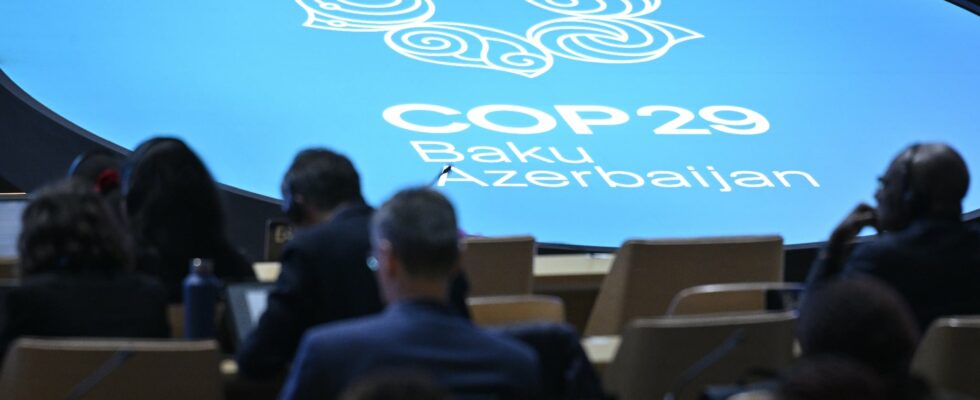This is the end of a painful saga: Sunday, November 24, COP29 reached a compromise after exhausting negotiations and twists and turns. Developed countries commit in Baku to provide more funding to poor countries threatened by climate change to the tune of $300 billion per year, in ten years. But behind the applause, the disappointment of representatives of developing countries was heard in the hemicycle. Starting with that of the Kenyan Ali Mohamed, speaking on behalf of the African group, who considers this amount “too low, too late and too ambiguous”.
Developing countries disappointed
An agreement that is “not ambitious”, says Evans Njewa, from Malawi, representing the 45 poorest countries on the planet. “The amount proposed is pitifully low. It’s ridiculous,” criticized Indian delegate Chandni Raina, criticizing the Azerbaijani presidency of COP29.
The small island states deplored “the lack of will to respond to the needs of vulnerable developing countries”, through the voice of its group leader, Samoan Cedric Schuster, once again disappointed with a multilateral process to which he nevertheless said attached. The poorest countries on the planet and the islands of the Pacific, Caribbean and Africa asked for double or more.
Westerners in a budgetary impasse
This financial commitment from European countries, the United States, Canada, Australia, Japan and New Zealand, under the auspices of the UN, is to increase from 100 billion today to ” at least 300 billion dollars” annually by 2035 their loans and donations to developing countries. Money to adapt to floods, heatwaves and droughts. But also to invest in low-carbon energies instead of developing their economies by burning coal and oil, as Western countries have done for more than a century.
Westerners, including the Europeans, the world’s leading donors of climate finance, were not ready to go beyond this amount, in a period of budgetary tightening and political upheaval. But believe they have contributed to a historic result. Joe Biden hailed the agreement as an “important step” in the fight against global warming.
For its part, France is less satisfied, regretting “an absence of leadership” and “not up to the challenges”, according to the Minister of Ecological Transition Agnès Pannier-Runacher. “No country got everything it wanted, and we are leaving Baku with a mountain of work to accomplish. So now is not the time to declare victory,” added the UN Climate chief, Simon Stiell.
Standoff over fossils
Another hiccup: one of the texts planned for adoption, supposed to deepen the exit from fossil fuels launched by the COP28 in Dubai, could not be adopted. The call for a “transition” towards an exit from fossil fuels does not appear explicitly in the main final texts presented at the UN climate conference, COP29, in Azerbaijan, which derives its wealth from exports. hydrocarbons.
On the other hand, in a victory for oil and gas countries, one of the documents published on Sunday by the Azerbaijani presidency just before a final plenary reaffirms that “transition fuels can play a role in facilitating the energy transition while ensuring energy security” . A direct allusion to fossil natural gas. The Europeans, who were hoping for more ambition in reducing greenhouse gas emissions, will also not find in the text the creation of a system for annual monitoring of transition efforts away from fossil fuels (coal, oil, gas) that they were hoping for.
The unprecedented background of this 29th COP was a year 2024 which will probably be the hottest ever measured. And, nine years after the Paris agreement, which aims to limit global warming to 1.50°C compared to the pre-industrial era, humanity will still burn more oil, gas and coal than last year. “The result offers false hope to those already bearing the brunt of climate disasters,” said Harjeet Singh, campaigner for the Climate Change Initiative. fossil non-proliferation treaty.
A Cop 29 marred by scandals
Azerbaijan fought to win the organization of the conference, the largest international event organized by the country, against Armenia. But the declarations of its president against France, the arrests of environmental activists and the harassment of American parliamentarians in Baku have weighed down the atmosphere. His management of the negotiations is harshly judged. Germany criticized it for its proximity to oil-producing countries, and delegates from dozens of developing countries slammed the door on a meeting on Saturday, saying they had not been fully consulted.
